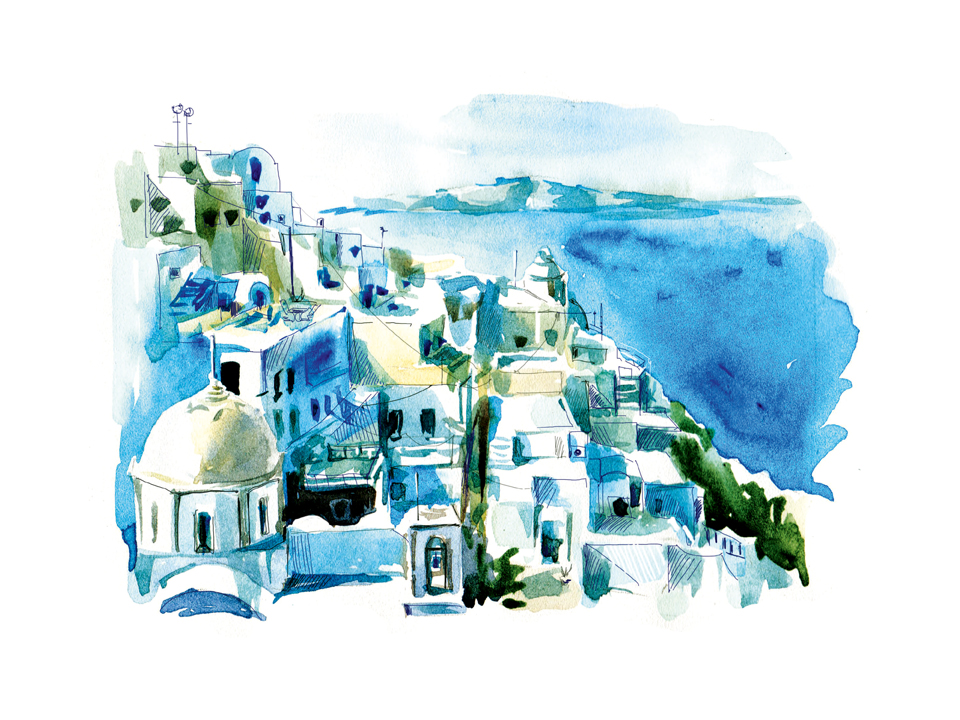While their geographical locations and cultural backgrounds vary, there are several common practices that bind the longest-living populations across the globe. We examine the world’s Blue Zones and uncover the nine philosophies that fill their lives with health, happiness and longevity.
According to an ancient Chinese legend, Okinawa, the main island of Ryukyu in Japan, is “the land of the immortals”. It’s believed that the fountain of youth has been mastered on this isle, where 100-year-old residents live healthful lives. This island has intrigued the world’s leading anthropologists and demographers, who have carefully studied the dietary and lifestyle habits of Okinawa’s inhabitants.
But it’s not just Okinawa that has caused intrigue. National Geographic conducted a study to find the world’s longest-living populations and, in addition to Okinawa, they identified four other locations: Barbagia, Sardinia; Ikaria, Greece; Nicoya Peninsula, Costa Rica; and Loma Linda, California. Interestingly, while these locations — dubbed the Blue Zones — are both geographically and culturally diverse, researchers found several commonalities. So, what can we learn from their inhabitants and, more importantly, how can we use their approaches to living to enhance our own lives?
The power nine: teachings from the world’s centenarians
Researchers of the Blue Zones identified nine evidence based commonalities among the world’s centenarians, to which they attribute their long, healthy lifespans. These factors are referred to as the “power nine”.
01 Find a purpose
The Nicoyans in Costa Rica refer to purpose as plan de vida, while the Japanese refer to it as ikagai. Both phrases translate to, “Why I wake up in the morning,” and are common among all five Blue Zones. Whether it be taking care of their loved ones, visiting friends or partaking in religious rituals, centenarians all have a strong sense of purpose. And it’s not surprising, given that studies have shown people who live with purpose tend to live 10 years longer, on average.
02 Move naturally
Far removed from the Western approach to gruelling exercise regimens, the residents of the Blue Zones practise moderate, low-intensity exercise. Common forms include walking, gardening and tai chi, all of which connect humans with the natural landscape and have grounding, restorative effects on the body.
03 Reduce stress
People who live in Blue Zones lead slow, mindful lives and have considerably lower levels of stress compared to other countries around the world. Interestingly, throughout the regions, residents practise different stress-reducing exercises; the Ikarians, for example, take daily naps, while the Sardinians consume a glass of wine in the early evening.
04 Eat moderately
The mindful practice of eating until you’re 80 per cent full dates back some 2500 years and has origins in the Confucian theory of hara hachi bu, which translates to, “Eat until you are eight parts full.” While it’s prevalent throughout all of the zones, it’s most prevalent in Okinawa, and researchers have attributed this practice to their higher percentage of centenarians.
05 Eat more plants
Residents of the Blue Zones consume a predominantly plant-based diet. This means plenty of seasonal vegetables, fruits, grains, legumes, nuts and seeds. They eat small amounts of dairy, fish and meat, with researchers finding that meat is consumed three or four times a month at most.
06 Drink moderately
A daily glass of wine is a commonality among the world’s Blue Zones. In every Blue Zone, except for California, residents drink regular but moderate amounts of wine or alcohol while consuming food and in the company of friends and family.
07 Cultivate belonging
Researchers have found that centenarians prioritise religion and many of them belong to a faith based community. In fact, it’s been found that religious and spiritual practices help to reduce mortality by 18 per cent, according to a meta-analysis published in Science Direct.
08 Put family first
To centenarians, prioritising their familial relationships is an essential element of living a happy, healthy and fulfilled life. Researchers of the Blue Zones have even found that having strong family ties significantly lowers disease and mortality rates.
09 Find a tribe
Lastly, the common thread that ties the world’s centenarians together is a sense of belonging and togetherness. The leading Blue Zones researchers have noted low levels of depression, as residents create networks that foster a feeling of connection to both their tribe and their environment.
Words DANAE DIMITROPOULOU
Want to learn more about being nourished? Visit our nourished archive page.




